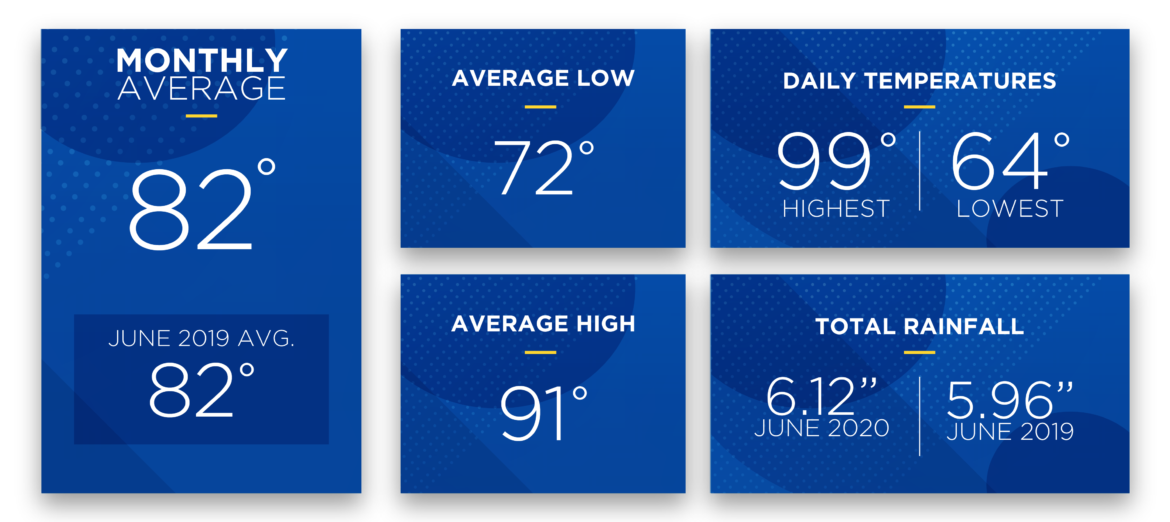Sunshine State Stats June 2020
Nine days of rain in the first 13 days of June contributed to a total of 6.12 inches of rain during the month. The average low temperature was 72.1 and the average high temperature was 91.3 degrees. Even though the average temperature in June was 82 degrees which was the same average temp in June 2019, 6 out of the last 10 days of the month recorded highs of 96 degrees or greater. June 2019 only recorded one day that reached 96 degrees during the entire month.

Did you know that June is the month with the longest daylight hours of the year in the Northern Hemisphere? It also holds the longest day of the year – the summer solstice.
Although hurricane season officially began June 1st, the tropics were active beginning in mid-May with the formation of three named storms. Arthur, formed on May 14th, Bertha on May 25th, and Cristobal on May 31st. Temperatures in the Gulf of Mexico near Naples Florida were recorded at 90 degrees per NOAA.gov. Warmer water temperatures typically equate to a higher likelihood of hurricanes and thunderstorms. Per Wikipedia, Florida has never had a major hurricane in the month of June. With that said, SECO Energy urges you to take this time to prepare your home and family.
July 2020 forecast:
Lots of heat is on the horizon for the month of July. The average temperature forecast for July is 83.6 degrees with highs that reach to the mid-90s on a regular basis and lows in the 70s. Precipitation averages 5.67 inches in July. Due to the hot July temperatures you can expect the air conditioner to run longer than it has in the previous months. Remember to check your filters monthly!
To view historical usage, log into SmartHub for past bills and consumption charts. If your usage is high, SECO offers several energy-efficiency tools to help you identify energy wasters. Take the Home Energy Assessment to receive a detailed email tailored to your home’s features and lifestyle. The energy-saving advice will provide low-cost ways to decrease your usage – and your electric bill.
To easily calculate how much energy your appliances, lighting, electronic devices, and other energy-using items consume, check out our Energy Estimator.






